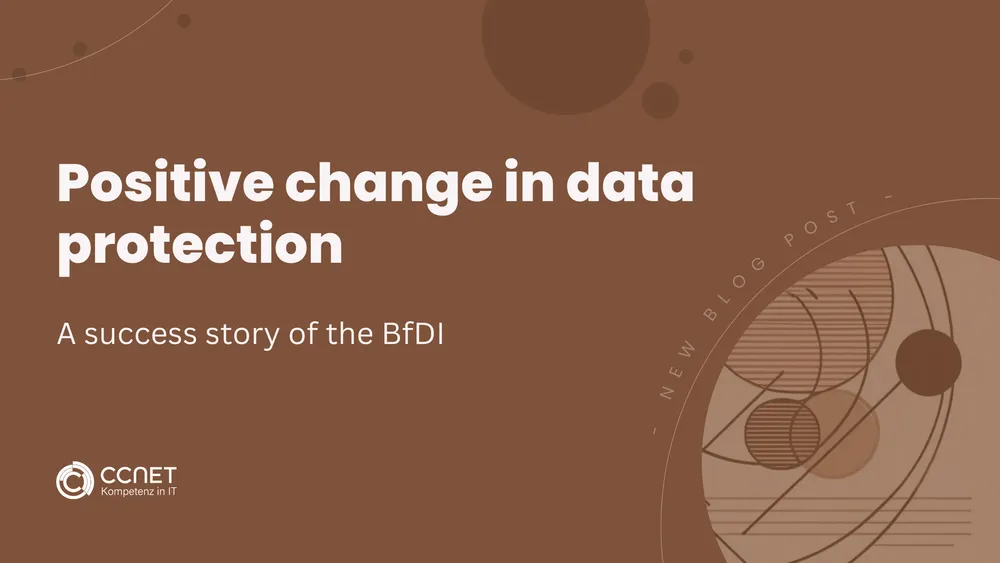
CCNet
Oct 9, 2024 • 2 min read

Digital Identities – Key to Participation in Modern Society
In our increasingly digital world, modern digital identities serve as the key that grants us access to a wide range of services and enables us to actively participate in digital life. The activity report of the Federal Commissioner for Data Protection and Freedom of Information (BfDI) highlights the central importance of responsible handling of digital identities to protect our fundamental rights and safeguard our privacy.
The Essential Role of Digital Identities in Digitalization
Digital identities are essential building blocks of digitalization, ranging from applying for services to citizen participation. However, their use is only justified when identification is genuinely necessary. Privacy-friendly technologies can help harness the benefits of digitalization without compromising the privacy of citizens.
Innovative Approaches to Ensuring Data Protection
An especially innovative approach in this context is the concept of selective data disclosure, as exemplified by the European Digital Identity Wallet (EUDI Wallet). These digital wallets allow users to reveal only the information necessary for a specific transaction, without disclosing the entire content of their identification document. Such technologies represent a significant step towards privacy-friendly digital identities and could, if widely adopted and accepted, substantially change the way we interact online.
Risks and Challenges in Handling Digital Identities
Despite the advantages of digital identities, there are also risks, particularly concerning tracking and the creation of movement profiles that threaten the right to informational self-determination. Creating digital spaces where we can move pseudonymously or quasi-anonymously is, therefore, crucial. Moreover, digital identities should support pseudonymous use to ensure privacy protection.
The Challenge of Balancing Convenience, Security, and Privacy
The challenge lies in designing digital identities that are both convenient and secure while respecting user privacy. Developing and implementing such systems requires close collaboration between governments, technology providers, and data protection experts. It is important that all stakeholders recognize the significance of data protection and incorporate it into their considerations.
Outlook and Progress in the Discussion
The discussion about digital identities and their impact on privacy and digital participation is far-reaching and complex. It remains to be seen how these technologies will evolve and how we, as a society, can ensure that they are used for the benefit of all.
FAQs on the BfDI and data protection
What internal developments did the BfDI pursue in 2023?
The BfDI strengthened its internal structures, including by establishing a new liaison office in Berlin to increase its political presence and visibility.
Why was a liaison office set up in Berlin?
It serves to strengthen the BfDI's presence in Germany's political center and facilitate participation in data protection policy processes.
How did the BfDI further develop its public relations work in 2023?
Livestreams, events, and new communication formats were used to expand dialogue with experts and the general public and increase visibility.
What is the BfDI's goal with its events?
It wants to raise awareness of data protection issues, contribute to education, and promote discussion in society.
What role does artificial intelligence play at the BfDI?
In 2023, a dedicated project group was set up to develop an AI strategy in response to new technological challenges in data protection.
Why is an AI strategy relevant to data protection?
Because AI has a profound impact on the processing of personal data, and clear rules and strategic guidelines are needed to ensure its responsible use.
How does the BfDI assess its development in 2023?
The 2023 annual report underscores the ongoing commitment to making data protection and freedom of information structurally and substantively sustainable for the future.
How is the BfDI preparing for future challenges?
By expanding internal capacities, setting the course for key issues at an early stage, and increasing visibility at the political and societal levels.


